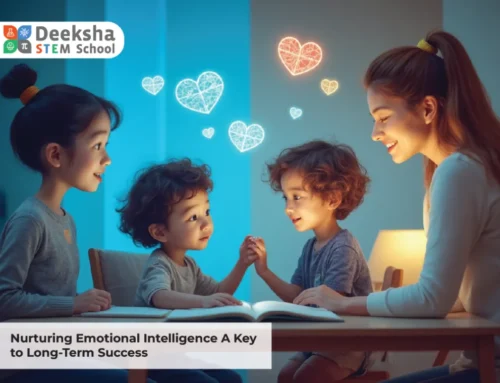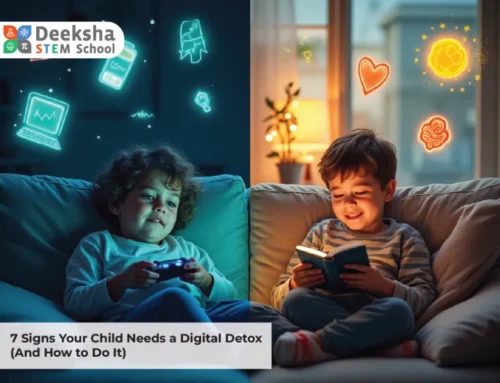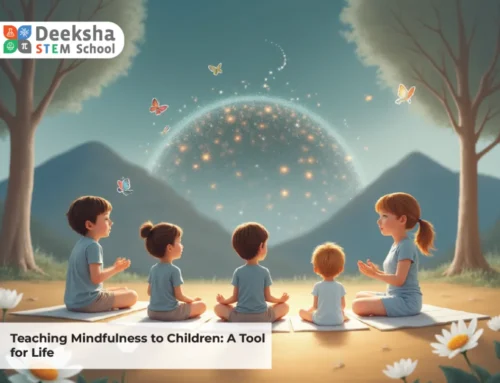Introduction
Summer break offers students the perfect opportunity to take a break from the traditional school routine. While it’s important to rest and recharge, it’s also essential to keep the brain active. One of the best ways to keep children mentally engaged during summer is by developing problem-solving skills, a critical life skill that benefits them academically, personally, and professionally.
Problem-solving skills help children think critically, analyze situations, and find innovative solutions to challenges. In this blog, we will explore fun and productive ways to develop problem-solving skills during the summer break that can help children in the future—whether they are solving math problems, making decisions, or tackling everyday challenges.
Benefits of Developing Problem-Solving Skills
Enhances Critical Thinking
- Problem-solving enhances critical thinking, allowing children to evaluate situations from different perspectives, think logically, and weigh potential outcomes.
- It encourages children to ask the right questions, seek out solutions, and approach problems with an open mind.
Boosts Confidence
- The more problems a child solves, the more confident they become in their ability to overcome obstacles. Successfully solving problems helps children feel more capable and resilient.
- Confidence gained from solving problems can extend beyond academics and into everyday life, including social situations and decision-making.
Improves Creativity
- Problem-solving often requires thinking outside the box. As children are presented with challenges, they’ll be forced to come up with creative and innovative ideas, which enhances their creativity.
- Engaging in creative problem-solving exercises helps children find multiple ways to approach tasks and encourages them to explore different solutions.
Prepares for Future Challenges
- Problem-solving skills are essential for long-term success. Whether in academics, career, or personal life, the ability to approach and solve problems effectively is a skill that will benefit children throughout their lives.
- Summer is a great time to introduce activities and challenges that will help children develop these skills in a relaxed environment, without the pressure of school deadlines.
Fun and Effective Ways to Develop Problem-Solving Skills
1. Engage in Puzzle and Strategy Games
- How to get started: Introduce your child to games such as Sudoku, crosswords, chess, or jigsaw puzzles. You can also explore online brain games that focus on logic, pattern recognition, and decision-making.
- Examples of games: Chess, Rubik’s Cube, Sudoku, Escape Room puzzles, and logic puzzles are all great for boosting critical thinking and problem-solving.
- Why it works: Puzzle games, brain teasers, and strategy-based board games are excellent ways to develop problem-solving skills. These games require children to think critically, analyze patterns, and develop strategies to win.
2. Participate in Science Experiments
- How to get started: Organize simple science experiments at home using everyday items, such as creating a volcano with baking soda and vinegar or building a homemade rocket. Encourage your child to ask questions, test their ideas, and adjust their approaches based on results.
- Examples of experiments: Try experiments like making slime, creating simple circuits, or observing the growth of plants. You can also conduct experiments to learn about physical properties, such as air pressure or gravity.
- Why it works: Science experiments encourage children to think like scientists by hypothesizing, testing, observing, and concluding. These hands-on activities require children to solve problems through trial and error, analysis, and creativity.
3. Encourage Coding and Robotics
- How to get started: There are plenty of coding platforms designed for kids, such as Scratch, Tynker, or Code.org, where children can learn the basics of coding and logic through interactive lessons and games.
- Examples of platforms: Enroll your child in online coding classes or join a robotics club that teaches how to build robots and use programming to control them.
- Why it works: Coding and robotics require logical thinking, creative problem-solving, and an understanding of algorithms. Learning to code or build robots encourages children to break problems down into manageable steps and figure out solutions on their own.
4. Build DIY Projects
- How to get started: Choose projects that match your child’s interests, such as building a birdhouse, creating a model of the solar system, or making their own craft or jewelry. Start with simpler projects and move to more complex ones as they develop their skills.
- Examples of projects: Build a model airplane, create a garden, or make a DIY solar oven to bake cookies. You could also build simple machines like levers or pulleys and discuss how they work.
- Why it works: DIY projects require children to plan, organize, and figure out how to make their ideas a reality. These activities enhance problem-solving by challenging children to troubleshoot and solve problems while creating something from scratch.
5. Explore Real-Life Problem Solving
- How to get started: Assign age-appropriate household tasks that require problem-solving, such as planning a family meal, organizing the garage, or designing a budget for a small project.
- Examples of activities: Ask your child to figure out the best way to organize a room, solve a family dilemma, or help you plan a vacation.
- Why it works: These real-world problems encourage children to think critically and develop solutions in a practical context. It also teaches time management, resourcefulness, and decision-making.
6. Learn Through Art and Design
- How to get started: Encourage your child to work on a drawing, painting, sculpture, or even digital artwork. Ask them to think about how to express certain themes or ideas and what materials to use.
- Examples of activities: Try activities such as creating a mural, designing a model city, or building sculptures with clay or recycled materials.
- Why it works: Art and design activities require creativity, exploration, and problem-solving as children work through their ideas to create something beautiful. Art helps children develop their creative problem-solving abilities by allowing them to express their thoughts in different mediums.
How Deeksha STEM Schools Support Problem-Solving Development
At Deeksha STEM Schools, we place a strong emphasis on developing problem-solving skills through our innovative approach to education. Our STEM programs, coding workshops, and hands-on projects are designed to challenge students to think critically and creatively. By incorporating problem-solving tasks into the curriculum, we help students become resilient, independent thinkers who are ready to face any challenge.
We encourage students to participate in group discussions, problem-solving exercises, and collaborative projects that foster teamwork and innovative thinking. With our emphasis on creativity and critical thinking, we ensure that every student is equipped to solve real-world problems.
FAQs
1. How can I teach my child problem-solving skills at home?
- Encourage your child to engage in puzzles, play strategy games, and participate in DIY projects. You can also challenge them with everyday problems, such as finding the best way to organize their room or plan a family activity.
2. What types of activities are best for improving problem-solving skills?
- Activities like coding, science experiments, puzzles, and DIY projects are fantastic for developing problem-solving skills. These activities promote critical thinking and creativity.
3. Does Deeksha STEM offer any problem-solving workshops for kids?
- Yes, Deeksha STEM Schools offer a range of workshops, including coding, robotics, and STEM experiments, all designed to help children improve their problem-solving abilities in an engaging and interactive way.
Conclusion
Summer break is a great time to develop and refine problem-solving skills in a relaxed and enjoyable way. By introducing your child to fun and engaging activities like puzzles, science experiments, coding, and DIY projects, you can help them strengthen their ability to approach challenges with creativity and critical thinking. These skills will not only help them academically but will also set them up for success in all areas of life.
Explore Deeksha STEM Schools’ summer programs to provide your child with an environment that fosters innovation, critical thinking, and problem-solving.






Leave A Comment